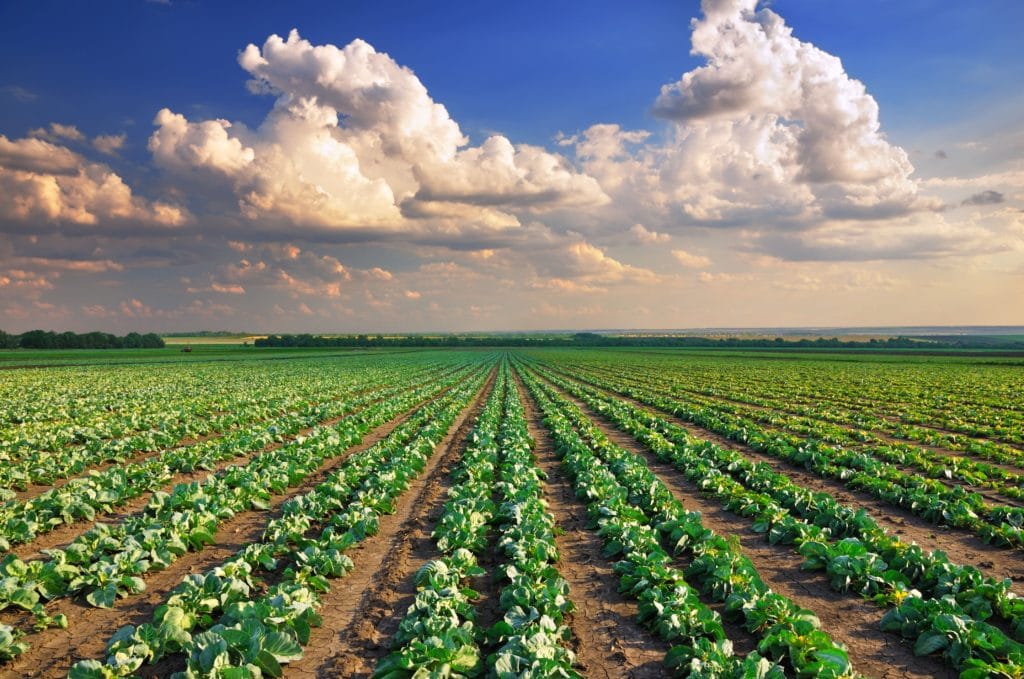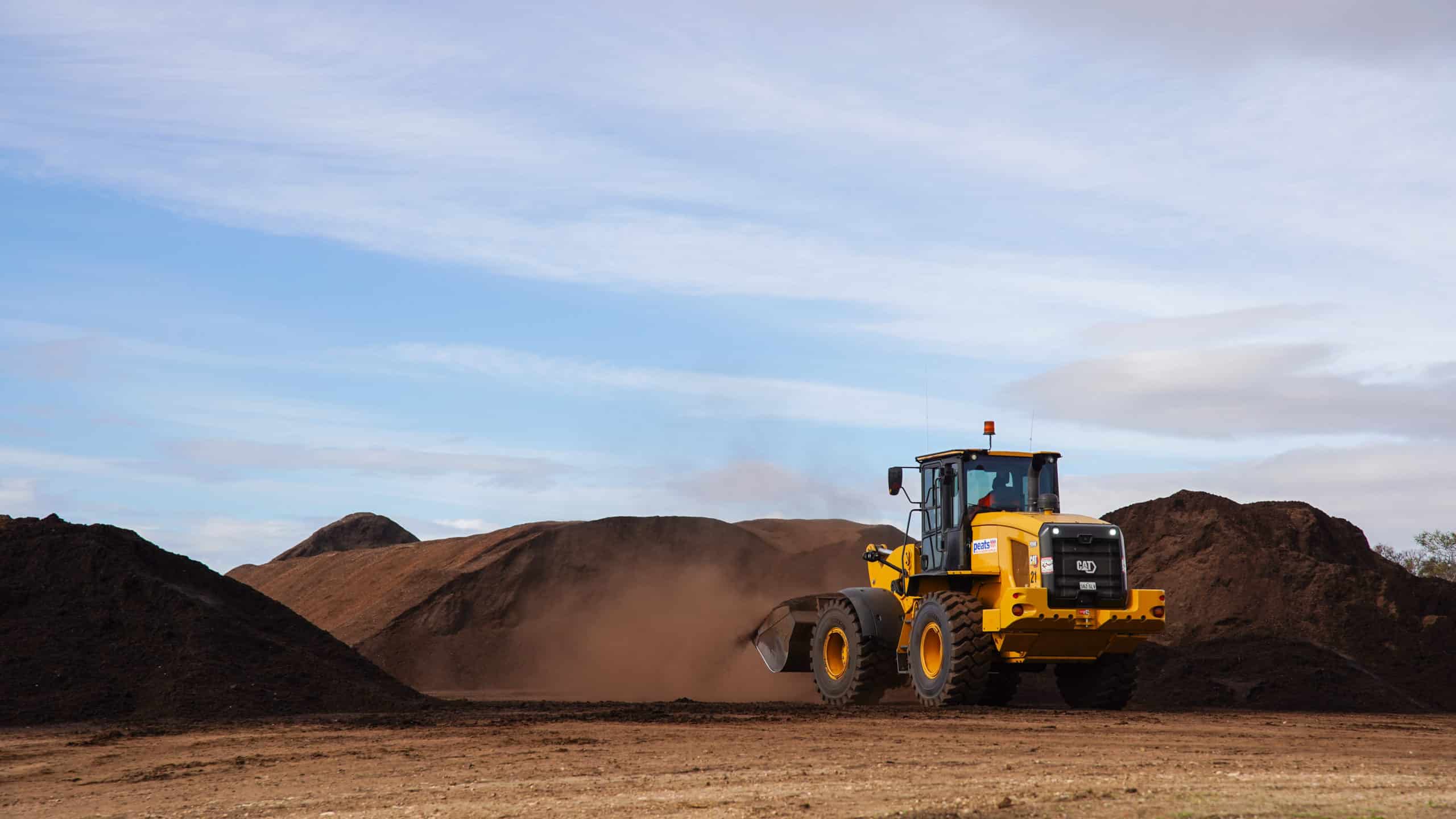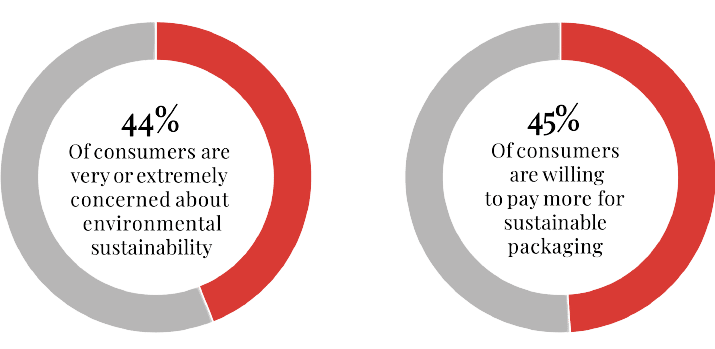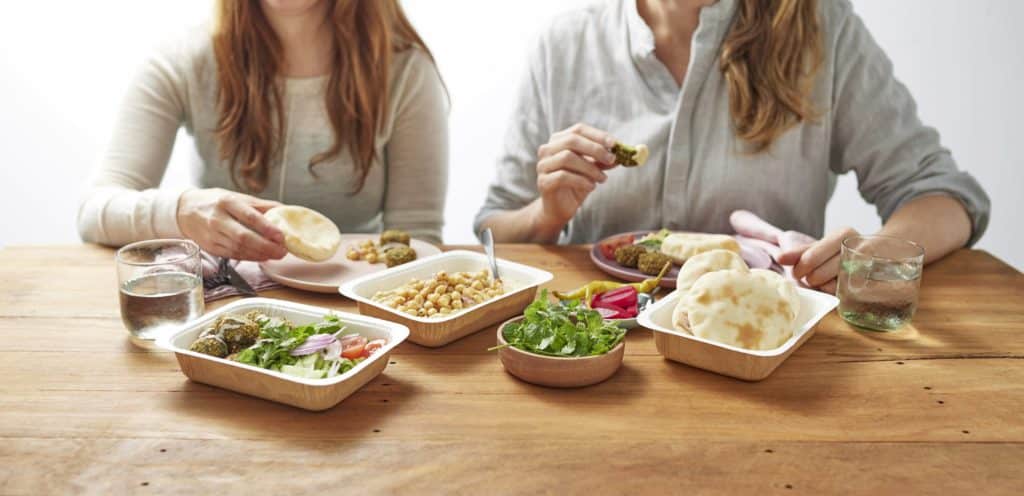Introducing
DualPakECO®
Certified Compostable Food Trays

Understanding
What Is DualPakECO® Made Of?

Ovenable & Microwavable
DualPakECO® trays are ovenable for 40 minutes, up to 180°C degrees and microwave safe.
Chillable & Freezable
Trays can be chilled and frozen.
Certified Compostable
DualPakECO® trays are certified to the Australian standard.
Heat
SealableSealing options include films and clip on lids for selected trays.
Customisable
External custom printing of brands, logos and designs available on request.
CERTIFICATION
Certified To Australian Composting Standard AS4736-2006

Looped Seedling Verified
DualPakECO® trays carry the looped seedling logo as verified by the Australian Bioplastics Association.
As more communities introduce source separation systems for diverting food waste from landfill, having certified compostable products will give consumers and organics recyclers (commercial composting facilities), the assurance that the products will completely biodegrade.
The looped seedling logo ensures that these products and materials are separated by consumers and commercial premises easily from other recyclables and placed in the appropriate stream and diverted from landfill.
DualPakECO® trays are made in our certified food safe facility (Food Safety System Certification 22000 Version 4.1) in Melbourne, Australia.
Why The Move To Composting?
Australian companies are reacting to the National Packaging targets, to make all packaging recyclable, reusable or compostable by 2025. This has caused an increased interest around certified compostable packaging solutions and consequently, resulting in a strong need to ensure that organics recycling infrastructure, such as composting is prepared well in advance.
BASF has been researching certified compostable and biodegradable polymers to support the development of certified compostable packaging solutions for more than a quarter of a centur

Composting For Today & Tomorrow
In Australia, commercial composting is represented by the Australian Organics Recycling Association (AORA). AORA works with stakeholders to facilitate the conditions through which surplus organic material can be sustainably and cost-effectively recycled. AORA works to advocate the benefits of diverting packaging from landfill, with a vision to increase the rate of organics recycling throughout Australia.
Organics recycling closes the loop on food and other organic wastes and ultimately returns them to food production through the soil.

Greenhouse Gas Savings
GHG savings equate to 3.8 million tonnes, the equivalent to planting 5.7 million trees or taking 876,663 cars off the road each year.
Job Creation
In 2018-19 the industry recycled 7.5million tonnes of organic material, creating 8000 direct and indirect jobs.
Water Savings
Compost can save around 20-30% of water usage, keeping soil moist and reducing the need for irrigation.
Healthy Soils
The application of compost creates healthy soils, which use less water, less fertiliser and fewer pesticides.
Composting: TODAY
Composting – An Important Contribution
"Bin Audits Have Shown 40-60% Of Waste Currently Sent To Landfill Is Organic Waste"
Source: Australian Department of Agricultural, Water & Waste
SUSTAINABILITY IS IMPORTANT TO CONSUMERS AND US
Almost Half Of Consumers Are Willing To Pay More For Sustainable Packaging

With BASF’s certified compostable biopolymer ecovio® PS1606 we have found the ideal component to take the next step towards sustainable solutions in our portfolio and to help our customers reach their sustainability targets.
Our joint development represents a shift to paper-based and certified compostable material in order to support the Australian 2025 National Plastics Plan which aims at reducing the impact of packaging on the environment.”
